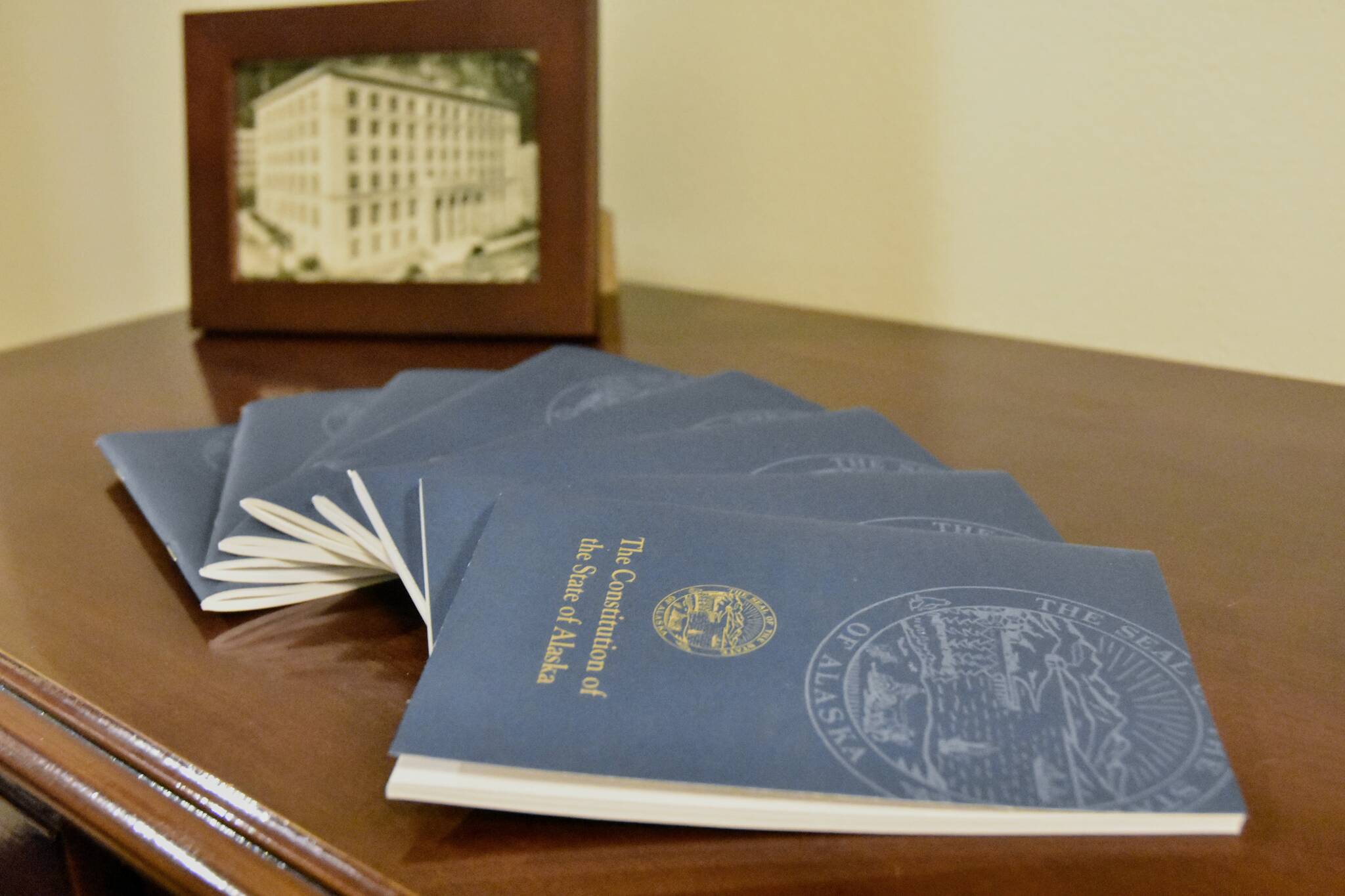There’s a bipartisan push in the Legislature to boost civics education in Alaska, noting a troubling decline in knowledge of the country and state’s foundational institutions.
Speaking to the Senate Finance Committee Tuesday, Sen. Gary Stevens, R-Kodiak, said there was a lot of misunderstanding about how the government works which was leading to a lack of confidence in democratic systems.
“We need to educate our children so they understand what it means to be a citizen of the United States,” Stevens told the committee. “(This bill) is not the answer to everything but it is an attempt to restore faith in our system of government.”
As an example, Stevens said his office received a call of someone complaining the Legislature had enacted ranked choice voting in the state, only to have to explain to the caller it was a vote of the people, not lawmakers, who had made that decision.
Stevens’ bill, Senate Bill 72, would enact a civics exit exam for high schoolers similar to the test given to those applying for U.S. citizenship. But the test would also include aspects of Alaskan government, including questions about Alaska Native tribal governments. Stevens said the test was not meant to be detrimental to students graduating and could be taken several times until passed. The bill is co-sponsored by Senate Minority Leader Tom Begich, D-Anchorage.
Stevens and commissioner of the Department of Education and Early Development Michael Johnson said the emphasis on civics education had declined in America which they said was contributing to political division in the country.
“Civics education is not a new innovation, it is timeless knowledge that we have simply forgotten,” Johnson told the committee.
The First Alaskans Institute gave a presentation in March 2021 to the House Special Committee on Tribal Affairs that could serve as the basis for a curriculum in Alaska Native tribal government, Johnson said.
Executive Director of Tribal Government and Client Services at Tanana Chiefs Conference Amber Vaska called in to give public testimony in favor of the bill.
[Alaska to receive $32 million for orphaned well clean up]
“The way our tribes understand government is different from the western understanding of government,” Vaska said. “Tribal sovereignty is the ability to live through our culture and the inherent right to self-government.”
Stevens told the committee he had seen a poll showing younger Americans expressed a preference for socialism over democracy, but in an interview with the Empire said he couldn’t recall where he saw that poll. A 2019 Gallup poll stated younger Americans had an equal view of socialism versus capitalism. According to that poll, younger Americans show a less favorable view than previous generations of big business and capitalism while retaining a positive view of small business and free enterprise.
“Young adults favor Americans’ basic economic freedoms but have heightened concerns about the power that accrues as companies grow, and that younger generations are more comfortable with using government to check that power,” according to Gallup.
Stevens said he didn’t view the democratic socialism of Western Europe and democracy as mutually exclusive but said they were different. The nuances between the different systems of government were a reason civics education was needed, Stevens said.
In his testimony, Johnson referenced President Kennedy’s 1962 speech where he announced America’s intention to go to the moon, saying, “We choose to go to the moon in this decade and do the other things, not because they are easy, but because they are hard.”
The state’s larger districts already have civics education requirements, Johnson said, but not all of them. The proposed civics exam in the bill wouldn’t replace those districts’ curriculum, he said, but augment it.
“Let’s not storm the capitol, let’s teach our students to read, teach them the value of liberty and never take it for granted,” Johnson said.
The Senate Finance Committee will review the bill again on Friday, Feb. 4.
Contact reporter Peter Segall at psegall@juneauempire.com. Follow him on Twitter at @SegallJnuEmpire.


